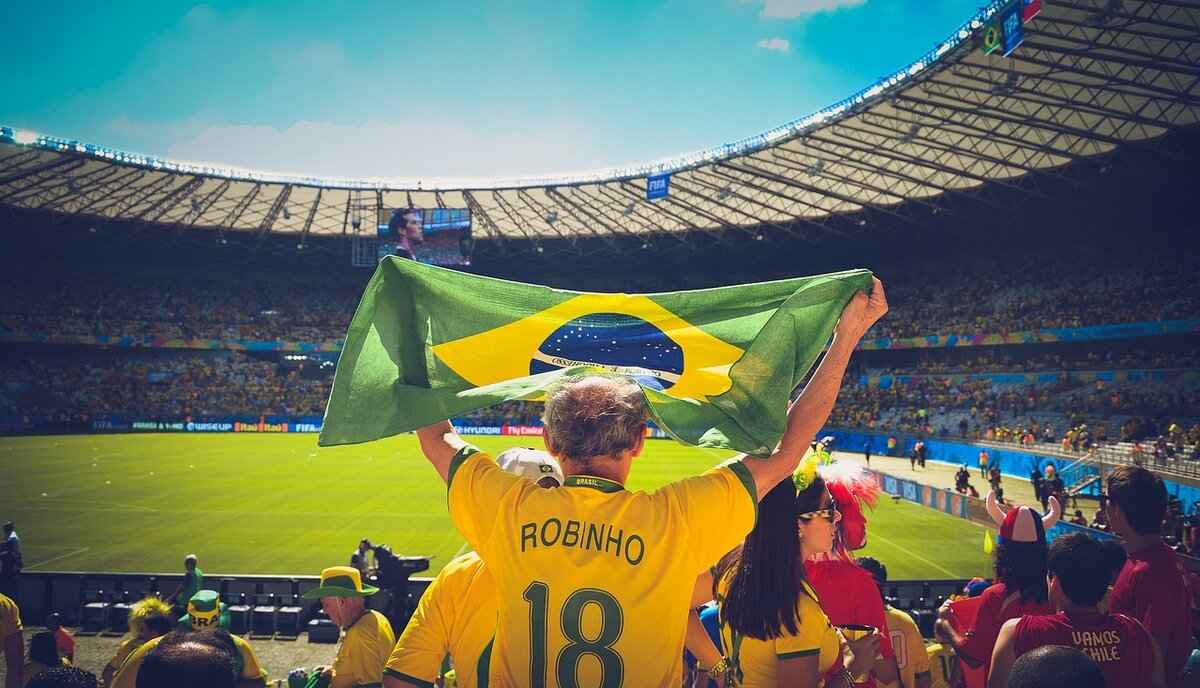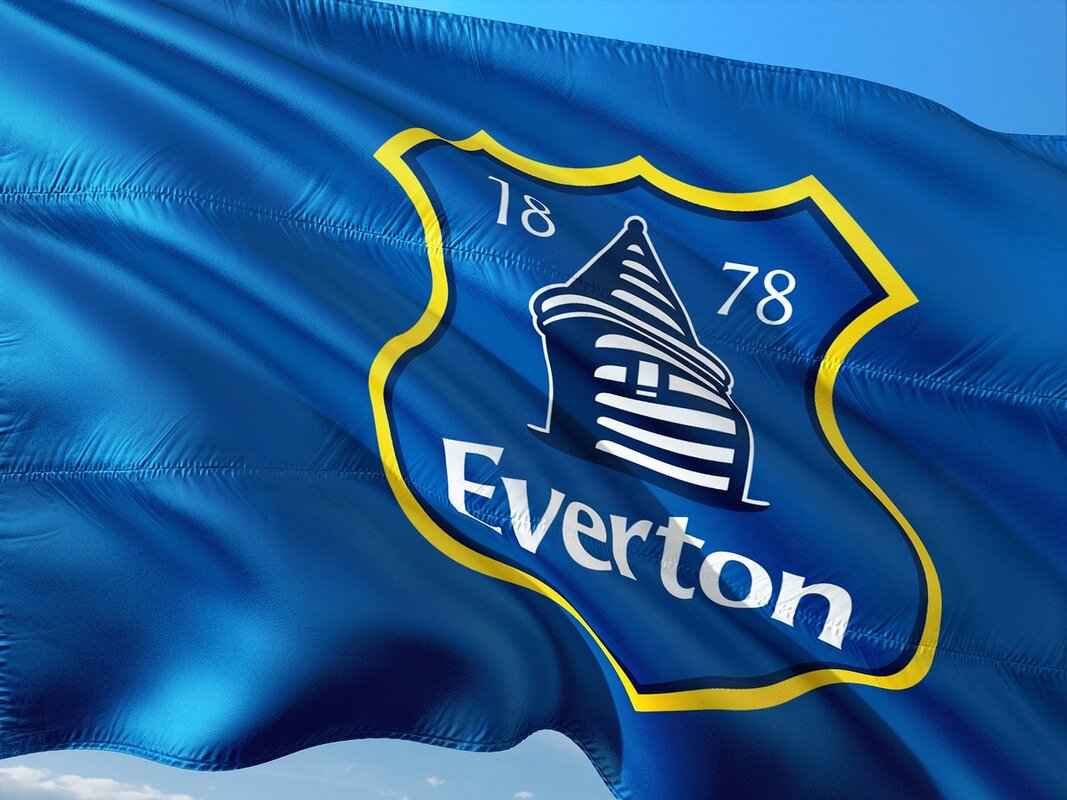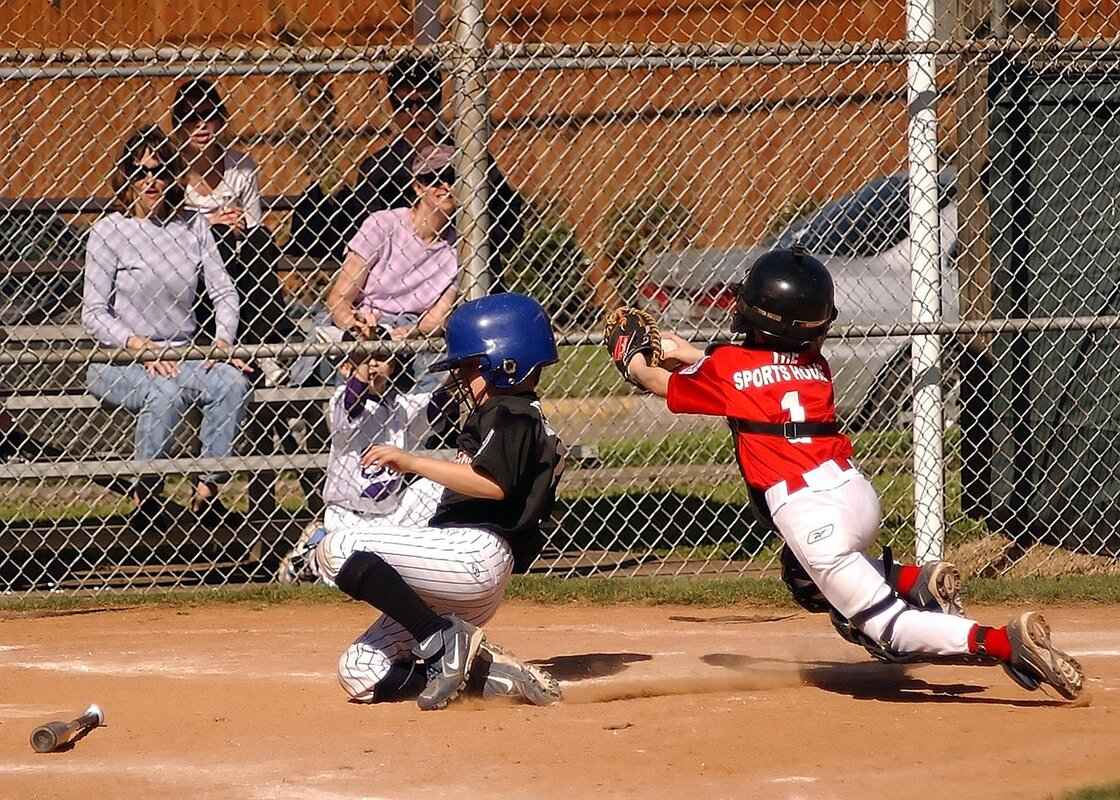The 2024 Europa Conference League promises to be an exciting tournament, showcasing not just the favorites but also potential dark horse teams that could make a significant impact. This article delves into these underdog teams, analyzing their strengths, weaknesses, and historical performances to identify who might surprise the competition this season.
The Europa Conference League serves as a platform for clubs that may not regularly compete in the higher echelons of European football. Understanding its format and significance is crucial for teams aiming for European glory. This tournament provides an opportunity for clubs to showcase their talents on a larger stage, often leading to unexpected outcomes.
Historically, dark horse teams have made remarkable runs in European competitions. Teams like FC Copenhagen and Villarreal have shown that with the right combination of tactics and determination, they can outplay stronger opponents. By examining past tournaments, we can see how these underdogs have capitalized on their opportunities, often making deep runs that defy expectations.
Several key factors often define dark horse teams. Tactical flexibility allows these teams to adapt to various opponents, while squad depth ensures they can cope with the rigors of a demanding schedule. Additionally, player form can be a game-changer; a single standout performance can propel a team forward in the knockout stages.
As we look ahead to the 2024 tournament, several teams emerge as potential dark horses:
- Team A: Recent performances in domestic leagues suggest they have the momentum needed to challenge stronger teams. Their tactical approach, focusing on counter-attacks and set pieces, could be their key to success.
- Team B: Known for their tactical innovations, Team B has been employing unique formations that have confounded opponents. Their ability to adjust strategies mid-game makes them a formidable contender.
- Team C: Balancing youth and experience, Team C has a squad that combines the energy of young players with the wisdom of seasoned veterans. This balance can be crucial in high-pressure matches.
However, dark horse teams face numerous challenges in European competitions. Financial constraints often limit their ability to reinforce their squads, while the pressure of knockout rounds can be daunting. Moreover, squad rotation becomes essential to maintain player fitness, which can impact their performance.
Fan support plays a vital role in the success of these underdogs. A passionate crowd can uplift a team’s morale, especially during crucial matches. Home advantage can significantly influence outcomes, making it imperative for dark horse teams to capitalize on their home games.
Statistical insights provide a quantitative perspective on the performance metrics of potential dark horse teams. Analyzing data such as goals scored, defensive records, and player performances can highlight which teams are best positioned to surprise in the tournament.
Finally, expert predictions for the 2024 season suggest that several teams could emerge as dark horses. Analysts are closely watching the current trends and team dynamics, offering insights into which clubs might defy expectations and make a deep run in the Europa Conference League.

What is the Europa Conference League?
The Europa Conference League has emerged as a significant tournament in European football, providing a platform for clubs that may not typically qualify for the more prestigious competitions like the Champions League or the Europa League. Understanding its format and significance is crucial for teams aspiring to achieve European glory, as it contextualizes their journey and aspirations within the broader landscape of continental football.
The competition was introduced by UEFA in the 2021-2022 season, designed to give more clubs the opportunity to participate in European competitions. This initiative not only promotes inclusivity but also enhances the overall competitiveness of European football. The format consists of several stages, including qualifying rounds, a group stage, and knockout rounds, culminating in a final match that determines the champion.
- Qualifying Rounds: Teams from various European leagues begin their journey through a series of qualifying matches. These rounds are crucial as they set the stage for the teams that will eventually compete in the group stage.
- Group Stage: The group stage features 32 teams divided into eight groups. Each team plays home and away matches against the others in their group, with the top two teams from each group advancing to the knockout phase.
- Knockout Rounds: The knockout rounds consist of two-legged ties, where teams face off in home and away matches. This format adds an extra layer of excitement and tension, as teams must perform consistently over two matches to progress.
The significance of the Europa Conference League extends beyond just the competition itself. It offers clubs a chance to gain invaluable experience on an international stage, which can be pivotal for their development. For many teams, success in this tournament can lead to improved financial stability through increased revenue from ticket sales, broadcasting rights, and sponsorships.
Moreover, winning the Europa Conference League provides a pathway to the UEFA Europa League for the following season, presenting teams with an additional incentive to perform well. This opportunity not only enhances a club’s reputation but also attracts better players and increases their competitiveness in domestic leagues.
In conclusion, the Europa Conference League serves as a vital component of European football, offering teams an opportunity to shine on a larger stage. Its format and structure allow for underdog stories to emerge, making it a thrilling competition for fans and clubs alike. Understanding this tournament’s significance helps contextualize the ambitions of teams aiming for European success, reinforcing its role in shaping the future of football across the continent.

Historical Context of Dark Horses
The historical context of dark horse teams in European competitions reveals a fascinating narrative of resilience and unexpected triumphs. Over the years, various teams have defied the odds, showcasing their ability to challenge more established clubs and create memorable moments in football history. This section delves into the journey of these underdog teams, shedding light on their remarkable performances and the factors contributing to their success.
Historically, the landscape of European football has been dominated by powerhouse clubs with extensive resources and storied legacies. However, the Europa Conference League and its predecessors have often served as a platform for lesser-known teams to shine. For instance, clubs such as FC Porto and Eintracht Frankfurt have emerged from relative obscurity to claim prestigious titles, illustrating the unpredictable nature of knockout competitions.
One of the most notable examples of an underdog’s success is Manchester United in the 1990s, who, despite facing formidable opponents, managed to secure their place in the annals of football history. Their unexpected victories against more established teams demonstrated the potential for surprise outcomes in high-stakes matches.
The ability of these dark horse teams to perform well often stems from several key factors:
- Tactical Flexibility: Many underdog teams employ innovative tactics that catch their opponents off guard. This adaptability allows them to exploit weaknesses in stronger teams.
- Team Cohesion: A close-knit squad often translates to better on-field chemistry, enabling players to work effectively as a unit.
- Motivation and Determination: Underdogs often enter competitions with a chip on their shoulder, driven by the desire to prove their worth and make a mark on the footballing world.
Moreover, historical performances of dark horses highlight their potential to make deep runs in tournaments. For instance, in the inaugural season of the Europa Conference League, teams like Roma demonstrated that with the right mindset and preparation, they could overcome more favored opponents. This trend of underdogs rising to the occasion not only captivates fans but also adds an element of unpredictability to the competition.
Statistical analysis further supports the notion that dark horse teams can be formidable contenders. By examining metrics such as goals scored, defensive solidity, and player form, analysts can identify potential surprises ahead of the tournament. For example, teams that excel in set-pieces or counter-attacks often find success against stronger sides, as they capitalize on specific game situations.
In summary, the historical context of dark horses in European competitions reveals a rich tapestry of unexpected outcomes and thrilling narratives. As teams prepare for the upcoming Europa Conference League, the legacy of past underdogs serves as a reminder that anything is possible in football. With the right combination of tactics, team spirit, and determination, the next dark horse could very well write their own chapter in the history of the tournament.

Key Factors Defining Dark Horses
The concept of dark horse teams in tournaments like the Europa Conference League is fascinating, as these teams often defy expectations and challenge more established clubs. Understanding the key factors that contribute to their success can provide valuable insights for fans and analysts alike.
One of the primary characteristics of dark horse teams is their tactical flexibility. These teams are adept at adapting their strategies based on their opponents, allowing them to exploit weaknesses and maximize their own strengths. For instance, a team might switch from a defensive formation to a more attacking setup mid-match, catching their opponents off guard. This adaptability is crucial in knockout tournaments, where the stakes are high and every match can be unpredictable.
Another vital element is squad depth. Dark horse teams often have a well-rounded squad that is capable of withstanding the rigors of a long tournament. This depth allows them to rotate players effectively, keeping key athletes fresh and reducing the risk of injuries. Teams that can field a strong bench are better positioned to handle the physical demands of consecutive matches, especially when facing teams with more star power but less overall squad quality.
Moreover, player form plays a significant role in determining a dark horse’s potential. Teams that have players in peak condition, both physically and mentally, can perform above expectations. This includes not only the star players but also those who might not be household names but can deliver crucial performances when it matters most. A player on a scoring streak or a goalkeeper in top form can turn the tide of a match, making their team a formidable opponent.
- Tactical Flexibility: Ability to adapt strategies during matches.
- Squad Depth: A well-rounded roster to manage fatigue and injuries.
- Player Form: Key players performing at their best, impacting match outcomes.
Additionally, the psychological aspect cannot be overlooked. Dark horse teams often enter tournaments with lower expectations, which can relieve pressure and allow them to play with freedom. This mindset can lead to surprising performances, as players are less burdened by the weight of expectation compared to their more favored opponents.
Furthermore, team chemistry is essential. A cohesive unit that understands each other’s playing styles and communicates effectively on the pitch can outperform teams with more individual talent but less synergy. Dark horses often feature players who have developed strong bonds through shared experiences, which can enhance their performance in critical moments.
In summary, identifying the characteristics that define dark horse teams—such as tactical flexibility, squad depth, and player form—is crucial for predicting potential surprises in the tournament. These factors not only contribute to a team’s overall performance but also highlight the unpredictable nature of football, where underdogs can rise to the occasion and challenge the status quo.

Potential Dark Horses for 2024
The 2024 Europa Conference League is set to showcase a variety of teams, but among them, a few may emerge as surprising contenders. These teams, often referred to as dark horses, have the potential to upset more established clubs and make significant progress in the tournament. Analyzing their current form, squad strength, and historical performance in European competitions can provide valuable insights into who might defy the odds this season.
Current Form and Momentum
Teams that enter the tournament with strong momentum can often carry that confidence into European matches. For instance, clubs like SC Freiburg and Real Betis have shown impressive form in their domestic leagues. Freiburg, with their tactical discipline and solid defense, could pose a threat to higher-ranked opponents. Similarly, Betis, with a blend of experienced players and young talents, is looking to build on their recent successes.
Squad Depth and Tactical Flexibility
Another critical factor for dark horses is the depth of their squad. Teams that can rotate players without losing quality are often more resilient in knockout competitions. Feyenoord, for example, has a well-rounded squad that allows for tactical flexibility. Their ability to adapt to different styles of play makes them a formidable opponent, capable of challenging even the top clubs in the league.
Historical Performance in European Tournaments
Looking at historical performances, teams like AZ Alkmaar and Rangers FC have a track record of surprising runs in European competitions. AZ’s previous campaigns have shown their capability to perform under pressure, while Rangers have a rich history in European football that could motivate them to excel once again.
Key Players to Watch
- SC Freiburg: Their star forward, Nicolas Höfler, has been in excellent form, scoring crucial goals in recent matches.
- Real Betis: With Sergio Canales orchestrating the midfield, they have the creativity to unlock defenses.
- Feyenoord:Orkun Kökçü has emerged as a key playmaker, often dictating the pace of the game.
Challenges Faced by Dark Horses
Despite their potential, dark horse teams often face significant challenges. Financial constraints can limit their ability to attract top talent, and the pressure of knockout rounds can be daunting. Moreover, squad rotation becomes essential as injuries and fatigue can impact performance in critical matches.
Fan Support and Its Impact
The role of fan support cannot be underestimated. Teams that enjoy passionate backing from their supporters often perform better in high-stakes matches. The atmosphere created by enthusiastic fans can provide a much-needed boost, particularly in home games, where the advantage can be pivotal in a knockout format.
Statistical Insights
Analyzing statistics can shed light on the potential of these dark horse teams. Key metrics such as goals scored, defensive records, and player performance ratings can help gauge their chances in the tournament. For example, teams with a high conversion rate in front of goal and solid defensive statistics are often well-positioned to make deep runs.
Expert Predictions
Football analysts are keeping a close eye on several teams that could surprise in the 2024 Europa Conference League. Their predictions are based on current trends, player performances, and tactical innovations. Teams like Feyenoord and AZ Alkmaar are frequently mentioned as potential dark horses, given their recent form and squad capabilities.
As the tournament unfolds, it will be fascinating to see which teams rise to the occasion and become the dark horses of the 2024 Europa Conference League, potentially rewriting the narrative of the competition.
Team A: Recent Form and Strengths
In the realm of football, Team A has recently captured attention with their impressive performances in domestic leagues and prior European competitions. Their journey has been marked by a blend of tactical innovation and standout player contributions, making them a team to watch in the upcoming Europa Conference League.
To understand Team A’s potential for success, it is essential to analyze their recent form. In the last few months, they have demonstrated remarkable consistency, securing vital wins against formidable opponents. This streak has not only boosted their confidence but also solidified their position in the league standings. Their ability to adapt to different match situations showcases their tactical flexibility, a key factor in their recent triumphs.
- Tactical Approach: Team A employs a dynamic tactical system that emphasizes both defensive solidity and attacking flair. Their formation often shifts between a 4-3-3 and a 3-5-2, allowing them to dominate possession while maintaining a robust defensive line. This adaptability has proven effective against various styles of play encountered in both domestic and European matches.
- Key Players: The squad boasts several key players who have the potential to make a significant impact. For instance, their captain and playmaker, Player X, has been pivotal in orchestrating the midfield, providing crucial assists and controlling the tempo of the game. Additionally, the young forward, Player Y, has emerged as a goal-scoring threat, showcasing his ability to exploit defensive weaknesses.
Moreover, Team A’s defensive unit has shown remarkable resilience. With a solid backline led by Player Z, they have managed to keep clean sheets against top-tier teams, demonstrating their capability to withstand intense pressure during matches. This defensive strength is complemented by a well-organized pressing strategy, which often leads to quick transitions from defense to attack.
Another aspect worth noting is the team’s depth. The bench strength of Team A allows for effective squad rotation, ensuring that players remain fresh throughout the season. This depth is particularly crucial in European competitions, where the intensity and frequency of matches can take a toll on players. Coaches often emphasize the importance of having reliable substitutes who can step up when needed, and Team A is well-equipped in this regard.
In conclusion, Team A’s recent performances reflect a well-rounded team capable of competing at high levels. With their tactical versatility, standout players, and depth in the squad, they are positioned to make a significant impact in the Europa Conference League. As they prepare to face various challenges in the tournament, their recent form and strengths will be critical in determining their success on the European stage.
Team B: Tactical Innovations
In the competitive landscape of European football, Team B has emerged as a beacon of innovation, particularly noted for their unique strategies and formations that have distinguished them in their domestic league. Their approach not only showcases their tactical acumen but also positions them as a formidable opponent in the Europa Conference League.
One of the key elements of Team B’s success lies in their flexible formations. Unlike traditional setups, they often switch between a 4-3-3 and a 3-5-2 formation, allowing them to adapt to various opponents and match situations. This tactical versatility enables them to exploit weaknesses in their rivals while maintaining a solid defensive structure. For instance, in critical matches, their ability to transition from a defensive to an offensive stance within minutes has caught many teams off guard.
Additionally, Team B has invested significantly in player development, focusing on nurturing young talent alongside seasoned professionals. This blend of youth and experience has proven advantageous, providing the team with both energy and tactical wisdom on the field. Their young players bring a fresh dynamic, often surprising opponents with their speed and creativity, while the veterans offer leadership and stability during high-pressure moments.
| Key Tactical Innovations | Description |
|---|---|
| Flexible Formation | Ability to switch between formations based on opponent analysis. |
| High Pressing Game | Forcing opponents into mistakes through aggressive pressing. |
| Positional Play | Players occupy specific zones to create passing triangles and overloads. |
Moreover, Team B has implemented a high pressing game, which has been instrumental in regaining possession quickly. This strategy not only disrupts the opposition’s rhythm but also creates scoring opportunities from turnovers. Their players are trained to apply pressure high up the pitch, forcing defenders into making rushed decisions, which often leads to mistakes that can be capitalized on.
Another remarkable aspect of Team B’s tactics is their emphasis on positional play. By ensuring that players maintain specific zones on the pitch, they create passing triangles that facilitate quick ball movement and maintain possession. This method not only enhances their attacking potential but also makes it difficult for opponents to regain control.
As Team B prepares for their upcoming matches in the Europa Conference League, their innovative strategies and formations are likely to be a focal point. Their ability to adapt and implement these tactics effectively can potentially lead them to surpass expectations and challenge more established teams. With a blend of tactical ingenuity and a strong squad, Team B is poised to make a significant impact on the European stage.
Team C: Youth and Experience Balance
Team C: Balancing Youth and Experience
In the high-stakes environment of the Europa Conference League, the ability to balance youth and experience within a squad can be a decisive factor. Team C exemplifies this balance, showcasing a mix of promising young talents and seasoned veterans. This strategic composition is particularly vital during high-pressure matches, where the emotional resilience and tactical acumen of experienced players can complement the raw energy and creativity of younger athletes.
One of the key advantages of having a diverse age range in the squad is the varied skill set that each player brings. Young players often possess a high level of stamina and enthusiasm, which can energize the team. For instance, Team C’s young midfielder has been noted for his ability to cover ground quickly, making crucial interceptions and initiating counter-attacks. His fresh approach can often catch opponents off guard, especially in knockout stages where surprises can lead to significant advantages.
On the other hand, the veteran players in Team C provide a wealth of experience that is invaluable in critical moments. Their understanding of game dynamics and ability to maintain composure under pressure can stabilize the team when tensions rise. For example, Team C’s captain, a seasoned defender, has been pivotal in organizing the backline during tight matches, ensuring that younger players feel supported and guided.
Moreover, the mentorship role played by experienced players cannot be understated. Young talents often look up to their more seasoned counterparts for guidance on and off the pitch. This dynamic creates a positive learning environment, fostering the development of emerging stars. The synergy between youth and experience can lead to innovative plays, as young players are more willing to take risks, while veterans can temper those risks with strategic thinking.
Team C’s coaching staff recognizes the importance of this balance and has implemented training sessions that encourage collaboration between age groups. By fostering an atmosphere where younger and older players can learn from each other, Team C not only enhances team cohesion but also builds a resilient squad capable of overcoming the challenges presented in high-pressure matches.
In conclusion, Team C’s ability to effectively balance youth and experience positions them as a formidable contender in the Europa Conference League. This strategic approach not only enhances their chances of success but also prepares the team for the unpredictable nature of knockout football. As the tournament progresses, it will be fascinating to observe how this balance plays out on the pitch, potentially leading to unexpected victories and memorable performances.

Challenges Facing Dark Horses
In the realm of European football, dark horse teams often capture the imagination of fans and analysts alike. These clubs, typically characterized by their underdog status, face a myriad of challenges as they aim to make their mark in prestigious tournaments such as the Europa Conference League. Understanding these obstacles is crucial to appreciating the journey of these teams.
Financial Constraints
One of the most significant hurdles dark horse teams encounter is financial constraints. Unlike wealthier clubs that can invest heavily in top-tier talent, these teams often operate on tighter budgets. This limitation affects their ability to attract high-profile players and maintain competitive wages. Consequently, they may struggle to acquire the depth needed for a grueling tournament schedule, which can lead to fatigue and injuries.
Squad Rotation Challenges
Another critical issue is squad rotation. Dark horse teams may find it challenging to balance their domestic league commitments with the demands of European competitions. Coaches often have to make tough decisions regarding which players to field in crucial matches, risking potential injuries or fatigue among key players. This lack of depth can severely hinder their performance, especially as the tournament progresses into the knockout stages.
Pressure of Knockout Rounds
The pressure of knockout rounds is another daunting challenge. Unlike group stages, where teams have the luxury of multiple matches to secure progression, knockout rounds are unforgiving. A single poor performance can lead to elimination. This high-stakes environment can weigh heavily on players, particularly those who are not accustomed to such intense scrutiny. The psychological aspect of competing in these high-pressure situations can lead to mistakes that might cost them dearly.
Inexperience in High-Stakes Matches
Many dark horse teams lack experience in high-stakes European matches. This inexperience can manifest in various ways, from tactical naivety to poor decision-making under pressure. The ability to maintain composure and execute a game plan effectively is crucial in knockout scenarios. Teams that have previously participated in such tournaments often have an advantage, as they understand the nuances of competing at this level.
Fan Expectations and Support
While fan support can be a double-edged sword, it often adds to the pressure faced by dark horse teams. As these clubs advance through the tournament, expectations from fans can grow exponentially. The desire to perform well for passionate supporters can create additional stress for players and coaching staff alike. Balancing the need to meet these expectations while maintaining focus on the game is a delicate challenge.
Conclusion
In summary, dark horse teams in the Europa Conference League face a unique set of challenges that test their resilience and determination. Financial constraints, squad rotation issues, the pressure of knockout rounds, and inexperience in high-stakes matches all contribute to the complexities of their journey. However, overcoming these obstacles can lead to remarkable stories of triumph, making the competition all the more thrilling for fans and players alike.

Fan Support and Its Impact
The influence of fan support on the performance of dark horse teams during crucial matches cannot be overstated. In high-stakes tournaments like the Europa Conference League, the presence and enthusiasm of supporters can provide a significant psychological boost to players. This section delves into how fan engagement and home advantage can sway the outcomes of matches, particularly for teams that are not traditionally seen as powerhouses.
The Power of Home Advantage
Home advantage is a well-documented phenomenon in sports, and it plays a critical role in the performance of underdog teams. When teams play in their home stadium, they are not only familiar with the pitch but also benefit from the support of their loyal fans. This dynamic can create an electrifying atmosphere that intimidates visiting teams. Studies have shown that teams playing at home tend to perform better, winning a higher percentage of their matches compared to when they play away.
- Psychological Boost: The presence of home fans can enhance players’ confidence and morale, making them feel invincible.
- Increased Motivation: Players often feel a sense of duty to perform well for their supporters, which can lead to improved performances.
- Disruption of Opponents: A raucous home crowd can disrupt the concentration of visiting teams, leading to mistakes and missed opportunities.
Case Studies of Dark Horses
Historically, several dark horse teams have leveraged their home advantage to achieve remarkable results in European competitions. For instance, teams like Sevilla FC and FC Porto have shown that a passionate fan base can turn the tide in crucial knockout matches. Their home stadiums often become fortresses, where the energy from the crowd propels the team to unexpected victories against more favored opponents.
Fan Engagement Strategies
To maximize the impact of fan support, many clubs implement strategic initiatives aimed at enhancing engagement. This includes:
- Community Involvement: Engaging with local communities to foster a sense of belonging and loyalty.
- Interactive Experiences: Providing fans with opportunities to interact with players and participate in matchday activities.
- Social Media Engagement: Utilizing digital platforms to connect with fans, share updates, and create a sense of community.
Challenges in Maintaining Fan Support
While fan support is crucial, dark horse teams often face challenges in maintaining consistent engagement. Factors such as economic constraints, changing team performance, and external pressures can affect attendance and enthusiasm. Teams must continually strive to keep their fan base engaged, especially during tough seasons when support may wane.
In conclusion, the role of fan support in boosting dark horse teams during crucial matches is vital. The combination of home advantage and a passionate fan base can significantly influence tournament outcomes. As the 2024 Europa Conference League approaches, teams that effectively harness the power of their supporters may well find themselves surprising their rivals and making deep runs in the competition.

Statistical Insights on Dark Horses
As the excitement builds for the 2024 Europa Conference League, the potential of dark horse teams is a topic of keen interest among fans and analysts alike. These teams, often underestimated, can leverage key statistics to showcase their performance metrics, offering a quantitative perspective on their chances in the tournament.
Understanding Performance Metrics
To evaluate the potential of dark horse teams, we must delve into various performance metrics that can indicate their likelihood of success. Key statistics include:
- Win Rate: A high win rate in domestic leagues often translates to confidence and momentum in European competitions.
- Goals Scored vs. Goals Conceded: Analyzing the goal differential helps gauge a team’s offensive strength and defensive resilience.
- Player Performance Index: Metrics such as assists, key passes, and successful tackles provide insights into individual contributions that can elevate team performance.
- Head-to-Head Records: Historical performance against potential opponents can reveal psychological advantages or disadvantages.
Team Analysis: Key Statistics
Let’s take a closer look at a few potential dark horse teams and their standout statistics:
| Team | Win Rate (%) | Goals Scored | Goals Conceded | Player Performance Index |
|---|---|---|---|---|
| Team A | 62 | 45 | 25 | 7.5 |
| Team B | 58 | 39 | 30 | 6.8 |
| Team C | 60 | 50 | 28 | 7.2 |
Interpreting the Data
The statistics above illustrate that Team A, with a win rate of 62%, not only excels in offensive output with 45 goals scored but also maintains a solid defense, conceding only 25 goals. This balance is crucial for success in knockout stages where both scoring and defending are paramount.
On the other hand, Team B, while having a slightly lower win rate of 58%, shows potential through its player performance index. A strong individual performance can often change the course of a match, especially in high-stakes environments.
Challenges in Data Interpretation
While statistics provide valuable insights, they should be interpreted with caution. Factors such as:
- Injuries to key players
- Changes in coaching staff
- Variability in match conditions
can significantly impact a team’s performance in the tournament. Therefore, while data is essential, it is equally important to consider the broader context of each team’s journey leading to the Europa Conference League.
Conclusion: The Importance of Statistics
In summary, statistical insights are vital for understanding the potential of dark horse teams in the 2024 Europa Conference League. By analyzing key performance metrics, fans and analysts can gain a clearer picture of which teams might defy expectations and make a significant impact in the tournament.

Expert Predictions for the 2024 Season
The 2024 Europa Conference League promises to be an exciting tournament, with numerous teams vying for glory. Among them, several underdog teams are expected to make a significant impact, surprising fans and analysts alike. This section delves into expert predictions regarding which teams could emerge as dark horses in this season’s competition.
Experts emphasize the importance of current trends and team dynamics when evaluating potential surprises. Teams that may not have a storied history in European competitions can often capitalize on their momentum and tactical innovations. Analysts have pointed out that the psychological aspect of the game plays a crucial role; teams that enter the tournament with confidence can outperform expectations.
- Team A: Known for their aggressive style of play, Team A has shown considerable improvement in their domestic league. Their recent performances suggest a team that thrives under pressure, making them a potential surprise package in the Europa Conference League.
- Team B: With a reputation for tactical innovation, Team B has adopted unique formations that have baffled their opponents. Analysts believe that their adaptability could lead them to unexpected victories in knockout stages.
- Team C: Balancing youth and experience, Team C has a squad that is both dynamic and resilient. Their young talents, combined with seasoned veterans, could provide the necessary edge in high-stakes matches.
Football analysts have observed that teams with a strong sense of unity and purpose are more likely to succeed in tournaments. Team cohesion is vital, as it allows players to perform at their best under pressure. Furthermore, teams that have invested in data analytics to assess player performance and opposition strategies are at a distinct advantage.
Another crucial element is the impact of fan support. Teams that can rally their supporters often play with greater intensity and determination. The atmosphere created by passionate fans can elevate a team’s performance, particularly in knockout matches where the stakes are higher.
Experts have compiled various statistics that highlight the strengths and weaknesses of potential dark horse teams. Metrics such as goal differential, possession rates, and successful pass percentages can provide valuable insights into a team’s overall performance. Analysts recommend paying close attention to these statistics as the tournament progresses, as they can indicate which teams are truly capable of making a deep run.
As the 2024 Europa Conference League approaches, the excitement around potential dark horses grows. With expert insights and a keen understanding of current trends, fans and analysts alike will be watching closely to see which teams can defy expectations and make their mark on this prestigious tournament.
Frequently Asked Questions
- What is the Europa Conference League?
The Europa Conference League is a European football competition that provides clubs from lesser-known leagues a chance to compete on a continental stage. It aims to promote football development and give teams the opportunity to shine in Europe.
- How do dark horse teams perform in the tournament?
Dark horse teams often surprise everyone by outperforming expectations. Historically, they have shown resilience, tactical adaptability, and the ability to capitalize on their opponents’ weaknesses, making for thrilling matches.
- What factors contribute to a team being considered a dark horse?
Key factors include a strong squad depth, innovative tactics, and current form. Teams that can blend youth with experience often have an edge, especially in high-stakes situations.
- What challenges do dark horse teams face?
Dark horses often contend with financial constraints, pressure from knockout rounds, and the need for squad rotation. These challenges can test their resolve and impact their performance in crucial matches.
- How important is fan support for dark horse teams?
Fan support can be a game-changer! A passionate home crowd can boost a team’s morale and performance, providing that extra push needed during critical moments in the tournament.














